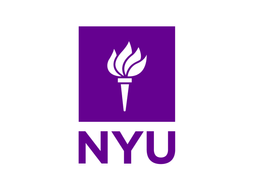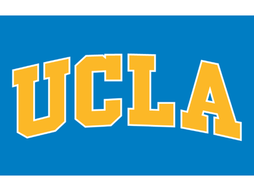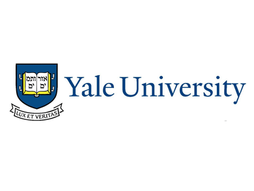10 University Research Programs for High School Students
If you are a high school student interested in investigating existing and new theories through experiments, studies, surveys, and data analysis, a research program is worth considering. These programs involve hands-on work on a research project, giving you some insight into data collection, interpretation, and presentation. Participating in a research program can also help you explore a field of interest, say a specific STEM discipline, and develop key skills like critical thinking and teamwork.
It is not just a good learning opportunity; this experience can also boost your profile and college applications, demonstrating your willingness to learn beyond the school curriculum.
One way to get comprehensive research experience is by applying to a university research program, as it is likely to be a structured program that would be conducted on campus in well-equipped facilities. You may also be mentored by experienced researchers. Additionally, these programs can offer a glimpse into everyday life on campus, helping you feel better prepared for college.
So, here we have listed 10 university research programs for high school students:
Location: Stanford University, Stanford, CA.
Cost/Stipend: Students earn a minimum stipend of $500. A stipend of $2,500 or above is given on a needs-based system. Housing and transportation costs are not covered.
Eligibility: High school juniors or seniors who are at least 16 years of age can apply.
Application deadline: February 24, 2024
Program dates: June 10, 2024–August 1, 2024
SIMR is an 8-week program in which students get to collaborate one-on-one with a mentor, who is either a Stanford graduate student or a postdoctoral fellow, and engage in research. You can choose from 8 areas of research, one of which is neurobiology. The program begins with orientation on the first day, followed by two weeks of morning lectures and lab work.
The rest of the program will be dedicated to special joint lectures, lab work, and poster preparation. You will be expected to be on campus about 40 hours a week, Monday to Friday. The program ends with a poster presentation where you, along with other participants, share your research experiences with family, teachers, and Stanford community members. This is a fairly competitive program with an acceptance rate of approximately 3% and a cohort of about 50 students each year. You can check the program instructions here before applying.
You can also choose from a variety of other research programs offered by Stanford here.
Location: Massachusetts Institute of Technology (Cambridge, MA)
Cost/Stipend: No cost. A stipend is provided but the exact amount has not been specified.
Eligibility: High school juniors who meet the academic requirements can apply.
Application deadline: Applications typically close in December/January
Program dates: June 23, 2024–August 3, 2024
The Research Science Institute (RSI) invites 100 high school students every year to engage in scientific research at MIT. Hosted by the Center for Excellence in Education, this program allows you to work on hands-on research under the guidance of MIT professors and scientists. You also get to attend college-level classes taught by faculty members. You will begin the program with one week of seminars covering current research topics in biology, chemistry, engineering, mathematics, physics, and humanities. At the end of the first week, you will get your research assignments and then work on them for the next 5 weeks. In the final week, you will also present your findings. The program structure consists of lectures (check out past speakers here), guided research work, field trips, and a final presentation.
Location: Duke University West Campus, Durham, NC
Cost/Stipend: No cost. Paid internship, but the amount is not specified.
Eligibility: High school sophomores, juniors, and seniors who are at least 15 years old at the start of the program and live in North Carolina within commuting distance of Duke University’s west campus can apply.
Application deadline: Applications typically close in March.
Program dates: The 8-week program typically runs from June to August.
Duke University’s Neuroscience Experience is an 8-week program offering high schoolers a chance to engage in full-time summer research in cutting-edge neuroscience. Here, you will be matched with a Duke University neuroscience lab and get to work on a research project under the guidance of a mentor, who will be a professional scientist. While you will spend most of your time in the lab (40 hours per week), you will get to attend professional development workshops. These sessions are held by local experts who offer guidance on your college application and help you explore career options in academia, medicine, and industry. At the end of the program, you will present your research at a poster session to your peers, family, and Duke scientists.
Location: Texas Tech University campus, Lubbock, TX
Cost/Stipend: Free. Students can get a $750 stipend upon successfully completing the program.
Eligibility: High school juniors and seniors who are at least 17 when the program starts can apply.
Application deadline: Applications typically close in February.
Program dates: 6 weeks, June 16, 2024–August 1, 2024
The Anson L. Clark Scholars Program, established in 1963, is a 7-week residential research program for high school juniors and seniors. Conducted at Texas Tech Univerity, the program allows you to work with university faculty and experience life on a college campus. You will also get to work on a research project. You can check out previous participants’ research areas and project topics here. The program also involves weekly seminars, discussions, and field trips. Each year, the students get to engage in hands-on research in not just STEM fields like computer science, chemistry, and neurobiology, but also humanities and business-related fields, like marketing and history. You can check this year’s research areas here. The program is selective, with all applications assessed on the basis of academic accomplishments, teacher recommendations, and career objectives of candidates. Each year, the program only selects 12 students. The program ends with the completion of the research project report, which can get you a $750 stipend!
Location: Hybrid program. For 4 weeks, students attend remote after-school workshops, and for 6 weeks students participate in the in-person program at New York University Campus, NY
Cost/Stipend: No cost. A stipend of $750 is given upon completion of the program.
Eligibility: Rising high school juniors and seniors in NYC can apply.
Application deadline: Applications typically close in March.
Program dates: The program runs for 10 weeks from June to August.
Applied Research Innovations in Science and Engineering (ARISE) is a free 10-week STEM research program. The program typically has room for 76–80 participants. During the program, you will be placed in an NYU lab and assigned a mentor (a graduate or postdoctoral student) and contribute to the lab’s research objectives. The program offers research opportunities in various STEM fields, including biology and various engineering fields. You can mention your areas of interest while applying. The program has two components—remote workshops and in-person lab work with your mentor. The workshops focus on the college application process as well as offer an introduction to scientific ethics, current issues in scientific inquiry, data collection and analysis process, research practices, lab safety, and more. Then, the next 6 weeks will be spent on research work. You will also get to develop presentation skills, which will come in handy while presenting your research findings at the program’s concluding colloquium.
If you are interested in applying to ARISE, you can check out a few handy tips here that can help you get selected.
Location: John Crerar Library at the University of Chicago campus, Chicago, IL
Cost/Stipend: No cost. Students get a stipend of $4,800.
Eligibility: High school students in Chicago can apply.
Application deadline: Applications typically close in January.
Program dates: The 8-week program typically runs from June to August.
The DSI Summer Lab program is an 8-week research opportunity for high school and undergraduate students. Here, you will be paired with a mentor and get to engage in research in fields like computer science, materials science, data science, climate and energy policy, social science, public policy, and biomedical research. During the program, you will explore research methodologies and practices and work on your research. Along with mentorship and hands-on research, the program offers access to a weekly speaker series featuring leading data science researchers, social activities like baseball games and picnics, and professional development and training. The program will end with a symposium where you will present a final video discussing your research findings with other participants and the university faculty. You can continue working on your research with your mentor even after the program ends! Check out past participants and their projects here.
Location: Harvard Medical School, Boston, MA
Cost/Stipend: No cost. Students will receive a stipend, but the exact amount is not specified.
Eligibility: High school juniors and seniors in Boston and Cambridge who are at least 16 years old and have a minimum GPA of 2.70 can apply. Students from backgrounds underrepresented in medicine and/or from disadvantaged backgrounds are encouraged to apply. Check the detailed eligibility criteria here before applying.
Application deadline: Applications typically close in February.
Program dates: July 8, 2024–August 16, 2024
Harvard Medical School’s Project Success is a 6-week in-person paid internship program for high school students in Boston and Cambridge, MA interested in pursuing biomedical careers. During the program, you will be placed and mentored in a Harvard Medical School lab or another facility of an affiliated institution. You will attend seminars conducted by researchers and physicians, visit hospitals and biotechnology organizations, undergo computer training, hone writing and speaking skills, and attend academic seminars and special programs. You will also get to engage in hands-on research. The goal of the program is to connect students with scientists and help them assess their interest in building a career in biomedical science. So the program also offers career guidance to students.
Location: The Rockefeller University campus, New York, NY
Cost/stipend: No cost. Travel expenses are covered. Need-based stipends may also be given to students.
Eligibility: High school juniors and seniors who are at least 16 years old at the start of the program can apply.
Application deadline: Applications typically close in January.
Program dates: June 24, 2024–August 8, 2024
The Rockefeller University’s Summer Science Research Program (SSRP) is a biomedical research opportunity for high schoolers. The cohort is typically 32 students who are divided into research teams, each mentored by a scientist. As a part of your team, you will work on a distinct biomedical research topic, mirror the structure of a laboratory, learn laboratory techniques, and analyze the collected data during the program. You will also have access to elective scientific courses, guest lectures, and social events. At the end of the program, all teams will present their research findings. Overall, you will spend 35 hours on SSRP activities.
Location: Stony Brook University campus, Stony Brook, NY
Cost/Stipend: No tuition fees, but participants who want to stay on campus will have to pay $2781.50, which covers accommodation and meals. A stipend may be offered at the end of the program but the amount isn’t specified.
Eligibility: High school juniors who are at least 16 years old can apply.
Application deadline: Applications typically close in February.
Program dates: July 1, 2024–August 9, 2024
The Simons Summer Research Program is a STEM research program for high school juniors. It offers a chance to work on a project in various research areas, including but not limited to biochemistry, applied mathematics, chemistry, computer science, geosciences, medicine, neurobiology, and physics. While applying, you can check the list of mentors and mention your top three choices of mentors/areas of research. Once accepted, you will be assigned to mentors and research groups. Then, you will learn about research techniques, work on your project, and participate in weekly faculty research talks, special workshops, tours, and events. You will have to work on a written research abstract and a research poster, which you will present at the closing poster symposium that concludes the program. You will also get a stipend at the end of the program!
Location: Washington University, St. Louis, MO
Cost/Stipend: No cost and you get a $4,000 stipend for the summer
Eligibility: Rising high school senior students from the Greater St. Louis area (Missouri and Illinois) can apply. Students from under-resourced public school districts and/or groups that are historically underrepresented in science are encouraged to apply.
Application deadline: Applications typically close in February.
Program dates: June 3, 2024–July 26, 2024
Washington University’s Young Scientist Program (YSP) aims to increase the participation of students from historically excluded groups in science. Its Summer Focus is an 8-week summer research program for rising high school students in the Greater St. Louis area. The program accepts 16–18 students each year. If accepted, you will be paired with a mentor and tutor, who are usually graduate students, post-doctoral associates, and laboratory staff. The mentor will work one-on-one with you on a biomedical research project in the laboratory, while the tutor will offer the support you need for your research. You also get to take two courses, one for strengthening your science communication skills, and the other for enhancing college readiness. Overall, you will be expected to work 40 hours a week. The program ends with a symposium where you will share your research findings with your mentor, tutor, labmates, and others invited to the event.
Previously, students have worked on research topics like genetics and genomics, ecology, developmental biology, cancer biology, microbiology, neuroscience, and biomedical engineering. You can check out past participants’ profiles and projects here.
If you’re looking for a competitive mentored research program in subjects like data science, machine learning, political theory, biology, and chemistry, consider applying to Horizon’s Research Seminars and Labs!
This is a selective virtual research program that lets you engage in advanced research and develop a research paper on a subject of your choosing. Horizon has worked with 1000+ high school students so far and offers 600+ research specializations for you to choose from.
You can find the application link here
One other option - Lumiere Research Scholar Program
If you’re interested in pursuing independent research, you could also consider applying to one of the Lumiere Research Scholar Programs, selective online high school programs for students founded with researchers at Harvard and Oxford. Last year, we had over 4000 students apply for 500 spots in the program! You can find the application form here.
Also check out the Lumiere Research Inclusion Foundation, a non-profit research program for talented, low-income students. Last year, we had 150 students on full need-based financial aid!
Stephen is one of the founders of Lumiere and a Harvard College graduate. He founded Lumiere as a PhD student at Harvard Business School. Lumiere is a selective research program where students work 1-1 with a research mentor to develop an independent research paper.
Image Source: Duke University seal











